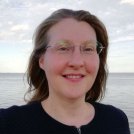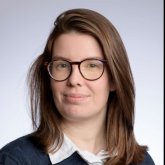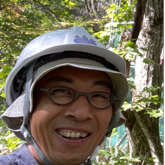Postdoctoral researcher Remote sensing for understanding ecosystem functioning of tidal areas
The University of Twente wants to be an organization that optimally deploys diversity, talents, and capabilities in the labor market for now and in the future. In our diversity and inclusiveness policy framework, we strongly stimulate people with a (work) disability to apply for this position.
The University of Twente is committed to providing a working environment where everyone is valued, respected, and supported to progress. Our priority is to ensure that no one is disadvantaged based on their ethnicity, gender, culture, disability, LGBTQ+ identities, family and caring responsibilities, age, or religion. We encourage everyone who shares these values to apply.
Mudflats, with (micro)algae, salt marsh plants, and seagrasses can be found along many sheltered coasts regulated by the tides. These intertidal areas are, for example, important as feeding grounds for (wader) birds, and for reducing flooding probabilities of the hinterland. The European HE-funded project REWRITE (REWilding and Restoration of InterTidal Sediment Ecosystems for carbon sequestration, climate Adaptation, and Biodiversity support) strives to provide an understanding of the functioning of these intertidal ecosystems and the ecosystem services that they have to offer and to investigate ways to restore and expand them. The University of Nantes coordinates the project and combines the expertise of a team of researchers from the natural and social sciences, and partners. The University of Twente will focus on satellite remote sensing of ecosystem functioning.
Within the project, you will combine satellite remote sensing of the REWRITE demonstrator sites, and sites globally, with (radiative transfer) modelling, and with biological and physical information from fieldwork. The goal is to yield consistent, quantitative long-term time series of spatial data of intertidal ecosystems, related to their role in e.g., primary production, biodiversity, sediment dynamics, and climate adaptation, in the context of rewilding. You will collaborate closely with partners in the project and support project activities. You will jointly publish your findings in scientific journals and present them during conferences and meetings.
Information and application
For more information about the position, please get in touch with Prof Dr Daphne van der Wal (email: d.vanderwal@utwente.nl). You are also invited to visit our [homepage] (https://www.itc.nl), as well as the [homepage of the EU REWRITE project] (https://rewriteproject.eu).
Please submit your application before November 1st, 2024. Your application should include:
- A motivation letter (maximum 2 pages of A4), emphasizing your specific interest, qualifications, and motivation to apply for this position
- Curriculum Vitae, including the names of two academic references
- A short description (150 – 250 words) of your PhD research
Short-listed candidates will be invited for interviews (either on-site or online).
About the department
The Department of Water Resources (WRS) of the University of Twente studies water systems and their relation with land use and climate through remote sensing, field instrumentation, and modeling. We aim at capacity building of communities of water professionals, scientists, and engineers that work toward a sustainable and resilient living environment.
About the organisation
The Faculty of Geo-Information Science and Earth Observation (ITC) provides international postgraduate education, research and project services in the field of geo-information science and earth observation. Our mission is capacity development, where we apply, share and facilitate the effective use of geo-information and earth observation knowledge and tools for tackling global wicked problems. Our purpose is to enable our many partners around the world to track and trace the impact – and the shifting causes and frontiers – of today’s global challenges. Our vision is of a world in which researchers, educators, and students collaborate across disciplinary and geographic divides with governmental and non-governmental organisations, institutes, businesses, and local populations to surmount today’s complex global challenges and to contribute to sustainable, fair, and digital societies.





